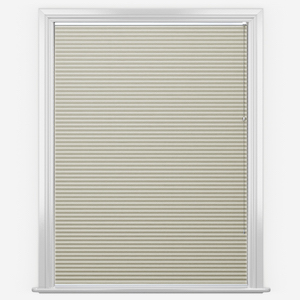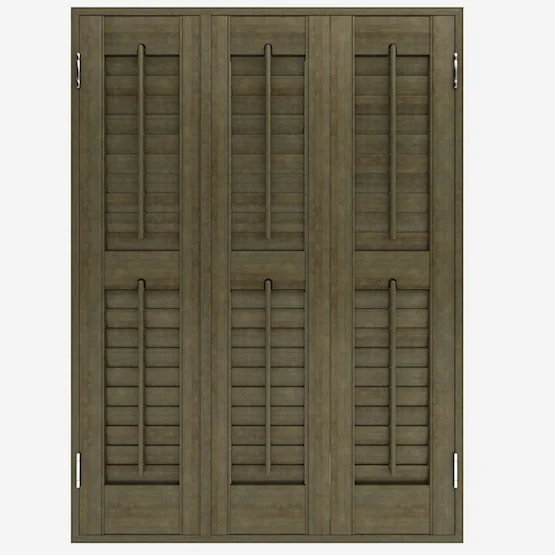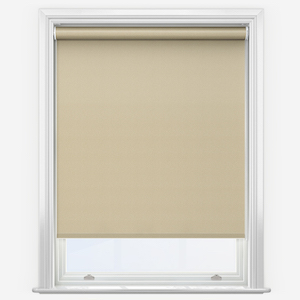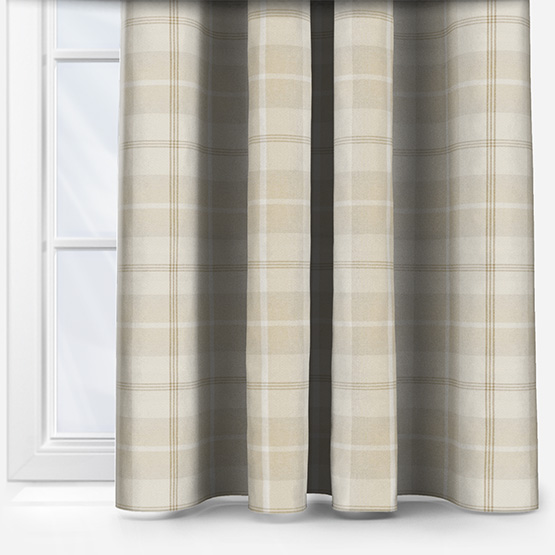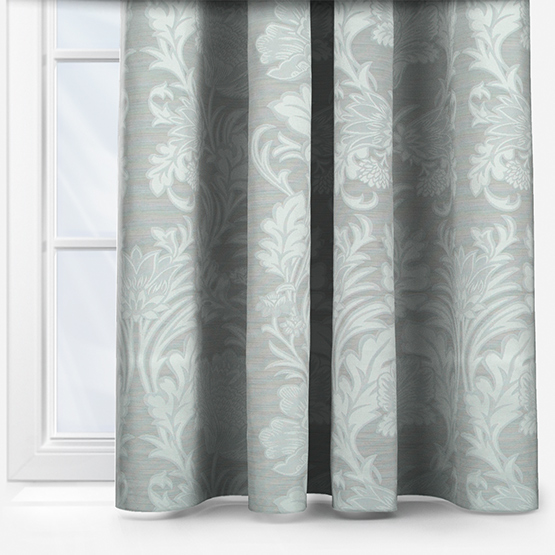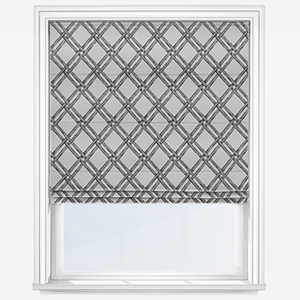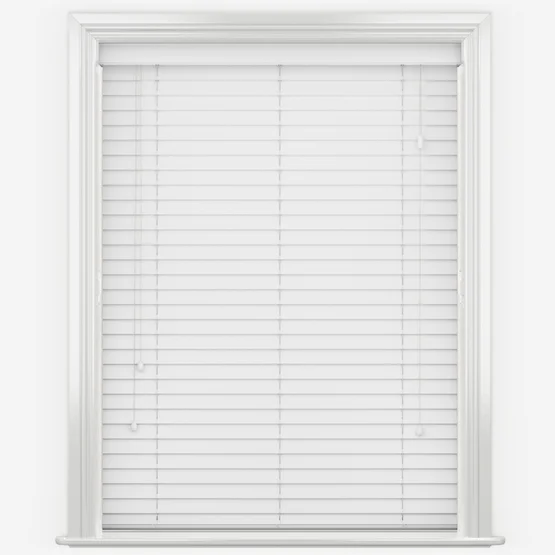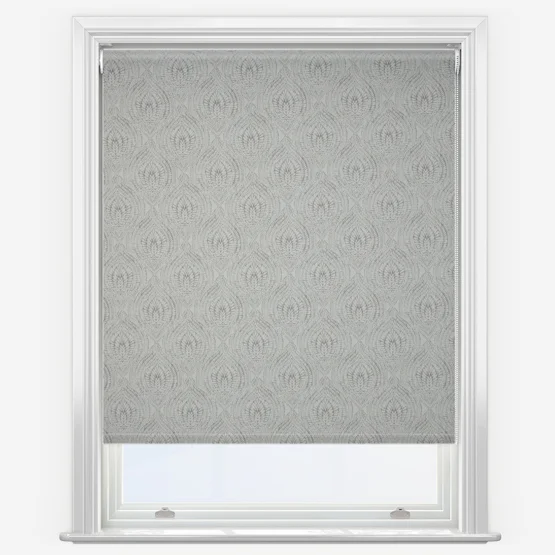
Reduce Your Home Energy Use With Blinds
While the cost of living crisis continues, and energy remains expensive, many of us are looking for ways to limit our consumption of electricity, oil and gas. While it’s well known that quality window furnishings are an excellent way to improve the style of a space, and its energy efficiency, how much do they improve the thermal efficiency of a room? Today, we’ll be investigating exactly how much energy can be saved by fitting the right blind to your windows.
Using blinds for insulation
Luckily, recent research from the BBSA and the University of Salford’s Energy House Labs has the data to prove exactly how much you can benefit from a range of fashionable blinds!
Any blind or curtain will help to keep the heat you’ve paid a lot for in your home and stop it from escaping through your windows. That said, different blinds provide different levels of efficiency, these are some of the best blinds for insulation. The information below demonstrates window energy loss reduction on a modern double glazed low-e window.
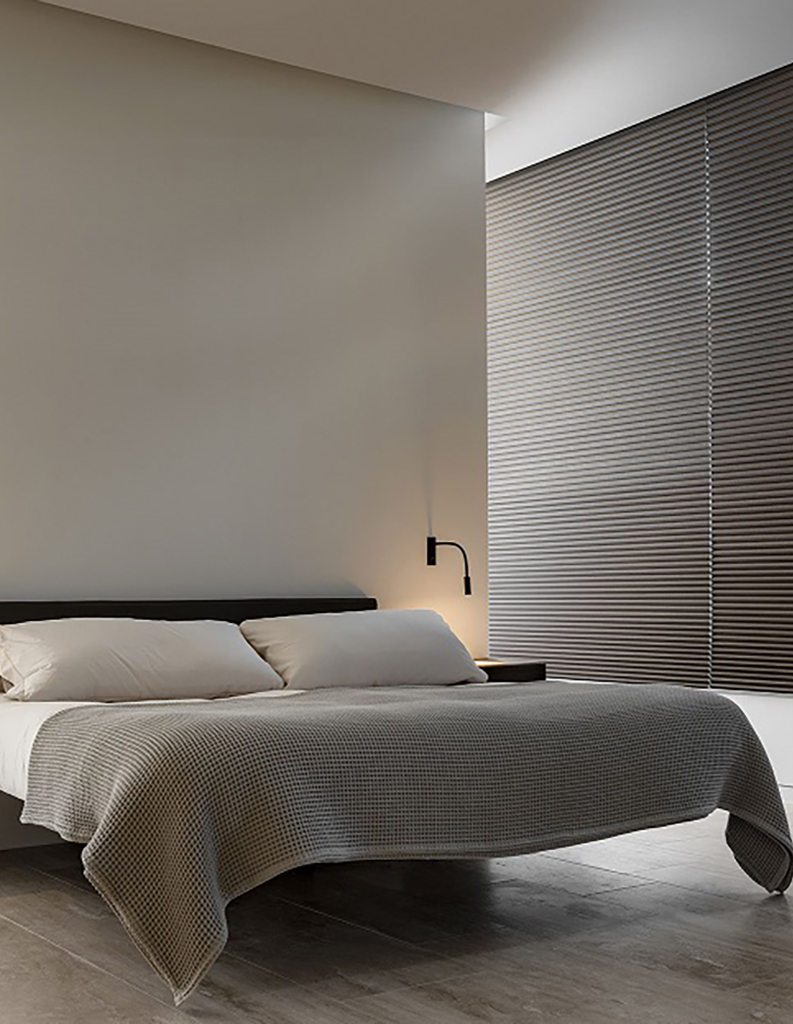
Shutters
Sleek and sophisticated, a quality shutter will refresh the look and feel of any home. Handcrafted from the finest materials and to the highest standards, our shutters are made from wood sourced only from sustainably managed forests, or uPVC faux woods suitable for rooms with high moisture such as kitchens or bathrooms.
While shutters are on the more expensive side of the window furnishings spectrum, a well made one is an investment that won’t only make your home more beautiful, but it will reduce a great deal of heat loss, with data demonstrating shutters reduce heat loss by 28%.
The option to simply rotate the slats, or open the shutters fully, also provides you with the opportunity to enjoy the perfect temperature when it comes to letting warm in from outside during the summer. Shutters are ideal year round.
Honeycomb blinds
A blockout honeycomb blind in a Perfect Fit framed bead fit system ensures any gaps are minimised. As a result, they can reduce energy loss by a lofty 32%! That said, any standard honeycomb blind will significantly reduce heat loss around the window. These innovative blinds are newer to the market than many alternatives, but they’ve already made their mark.
Sometimes known as cellular shades – honeycomb blinds have been specially designed with thermal benefits in mind and feature a column of cells within the body of the blind. These cells trap air which forms a barrier to stop heat escaping. As a result, the heating can be put on for less time. If honeycomb blinds aren’t what you are looking for, you can also consider thermal pleated blinds!
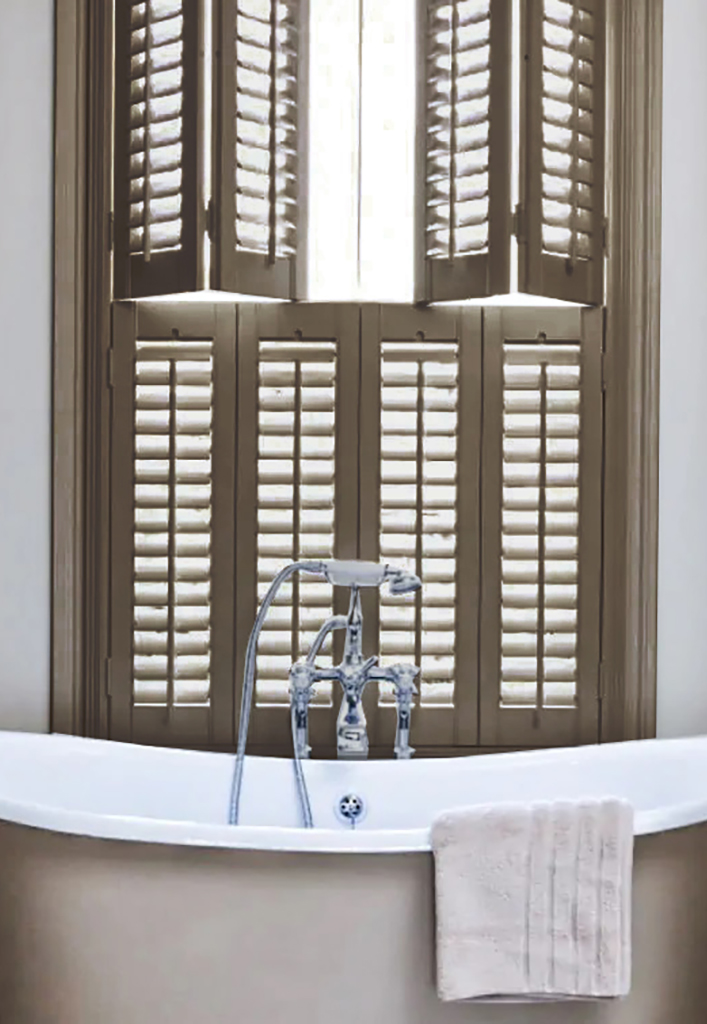
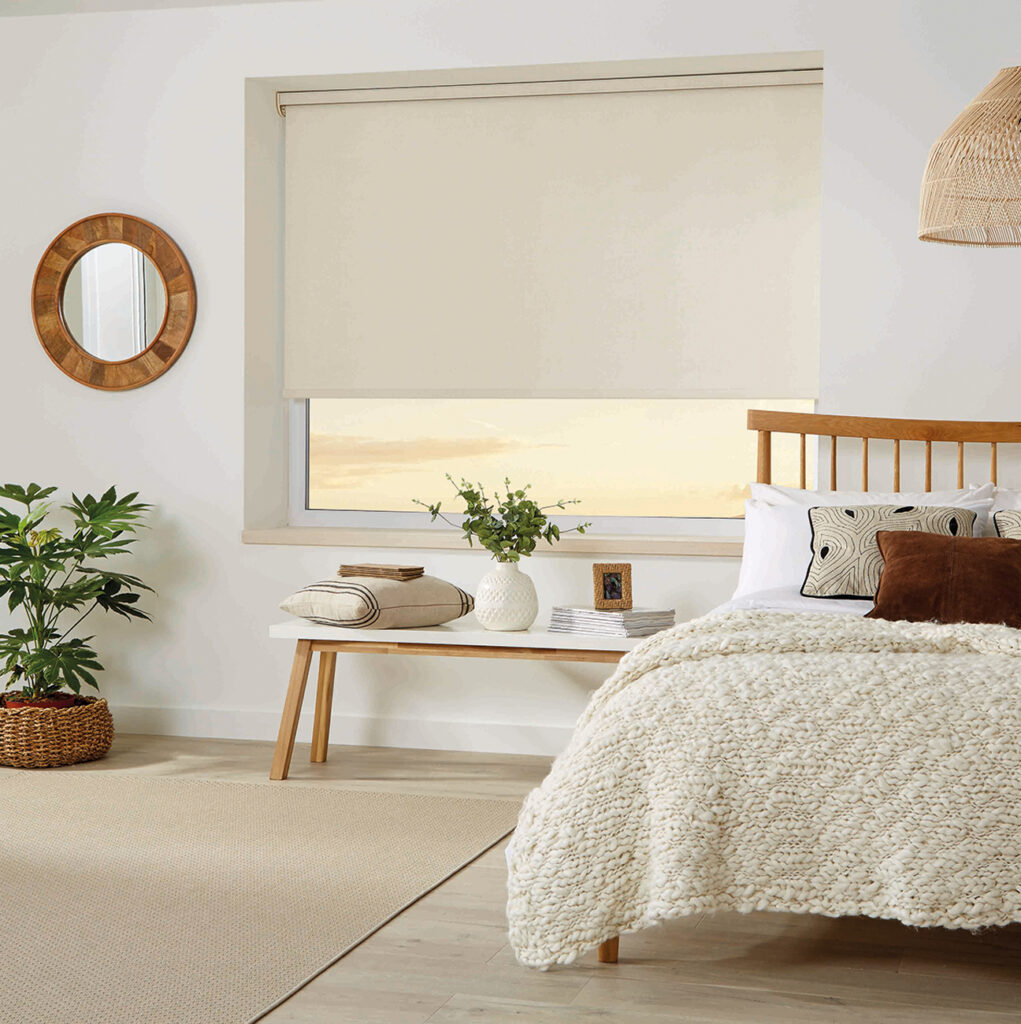
Roller blinds
Roller blinds are a classic enjoyed around the world. Simple and practical, roller blinds are a versatile window dressing that makes them suitable for every room in the home. Additionally, they can reduce heat loss with even a standard roller blind reducing energy loss by up to 13%!
If, however, you need a little more from your roller blinds, we offer a fantastic selection of thermal roller blinds that offer even better heat retention properties without compromising on style. Made from specialist fabrics available in a fantastic range of colours and patterns, thermal roller blinds will improve the aesthetic of your home, and reduce even more heat loss.
Curtains and Roman blinds
In addition to the fantastic options outlined above, you can also use curtains and Roman blinds to keep the heat in your home. With even a standard lining, Roman blinds and curtains will form an effective barrier against the cold, but you can add a thermal lining for even greater results.
At Blinds Direct, we offer free thermal linings on all curtains and Roman blinds allowing you to make the most out of your window dressings for no extra cost. Moreover, our range of roller blinds also includes several specialist thermal fabrics offering even more thermal blinds for your consideration. You can learn more about our range of linings in our buyers’ guide.
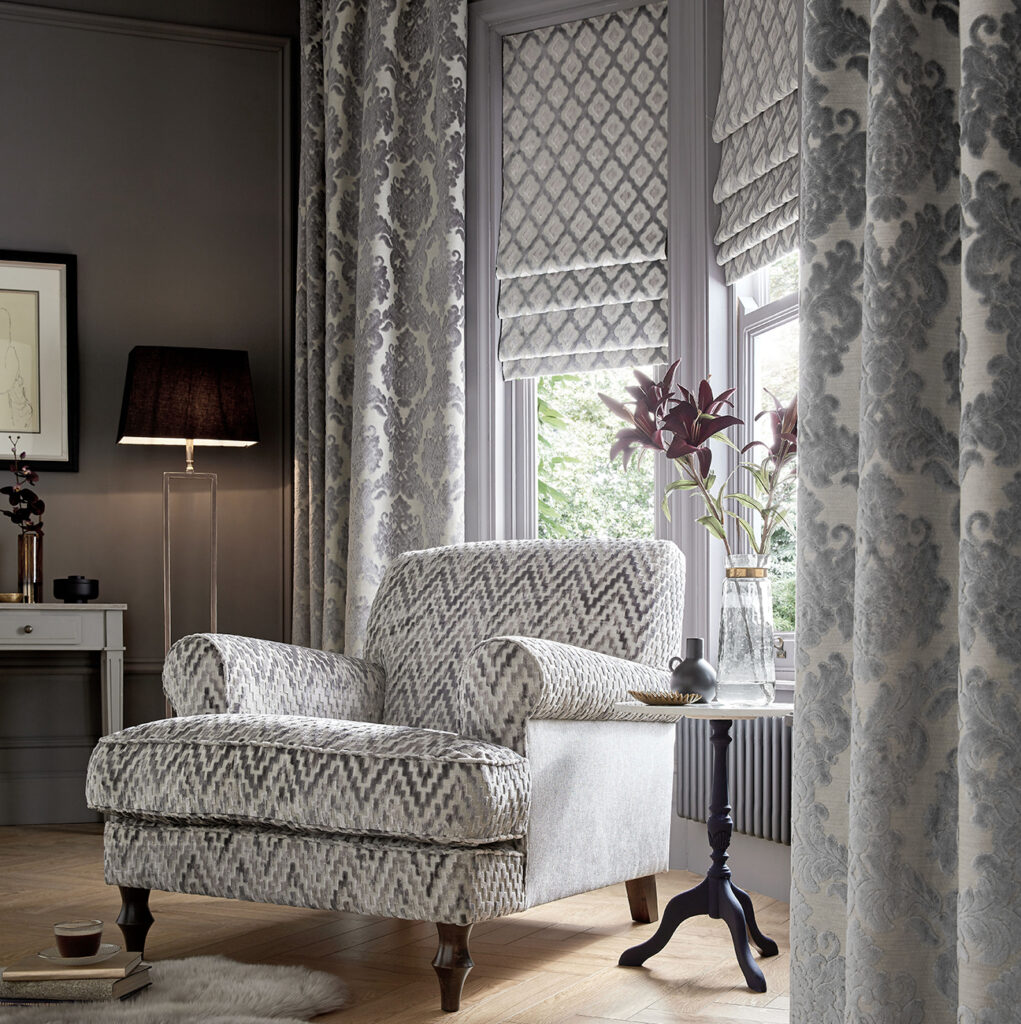
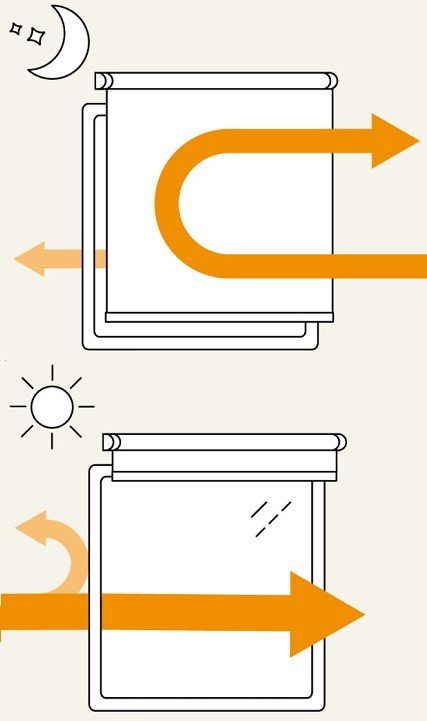
Some extra tips for thermal blinds
While new thermal blinds will help you keep the heat in during the cost of living crisis, and reduce your energy use, there are some additional tips you can take to improve it even more.
When is best to open or close your blinds?
This relates to the opening and closing of your blinds. When it’s cold in the evening, and the heat is coming from within your home, it’s vitally important to close your blinds to block the heat from escaping. Conversely, as the weather starts to warm up as we head into spring, making sure your blinds are open during warmer days will help the heat enter your home, and reduce your need for having the heating on at all. If the day is cold however, again draw the blinds when your heating is on.
Layering your windows
Finally, you can consider layering your windows. We’ve spoken before about the advantages of layering a window and how it can make your space look more stylish, but by having a blind within the recess of your window, and a curtain covering the recess from above, you can add even more resistance between the warm air in your home and the outdoors. For maximum effect, consider adding thermal lined curtains to a window featuring Perfect Fit honeycomb blinds.
By investing in a quality thermal blind now, you can help to limit the amount of energy you need to keep cosy during the final days of winter, and for many winters to come. Each of our blinds and curtains comes with a five-year guarantee, so you can rest assured that your new window furnishing will last for the long term.
About the BBSA and the University of Salford’s Energy House Labs
The data used to inform this blog comes from independent research by the University of Salford’s Energy House Labs, which was commissioned and funded by the British Blind and Shutter Association (BBSA).
The University of Salford’s Energy House is a unique research and testing laboratory which comprises an early 20th century two-bedroom terraced house within an environmental chamber. As part of the research, several blinds were tested against a modern double glazed window.
Each U-Value measurement was made following ISO 9869:1, using a single heat flux plate (HFP) located at the centre on the glazing panel. Each system was tested for a minimum of 72 hours, with the stated U-value being based on the final 24h period.
The BBSA is the UK’s only national trade association for businesses that manufacture, supply and install interior and exterior blinds, awnings, security grilles and shutters and associated motor and control systems.
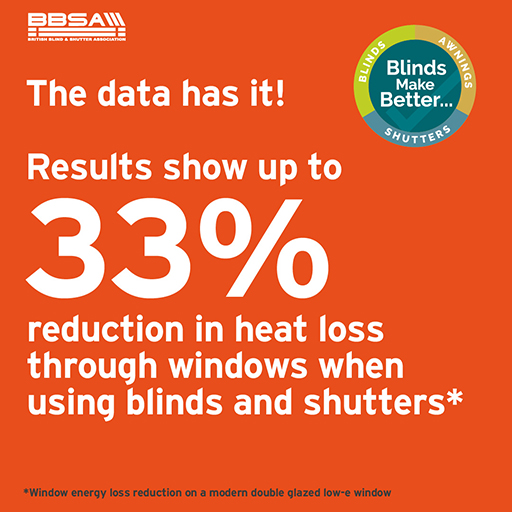
Shop some of our most popular energy saving blinds:
